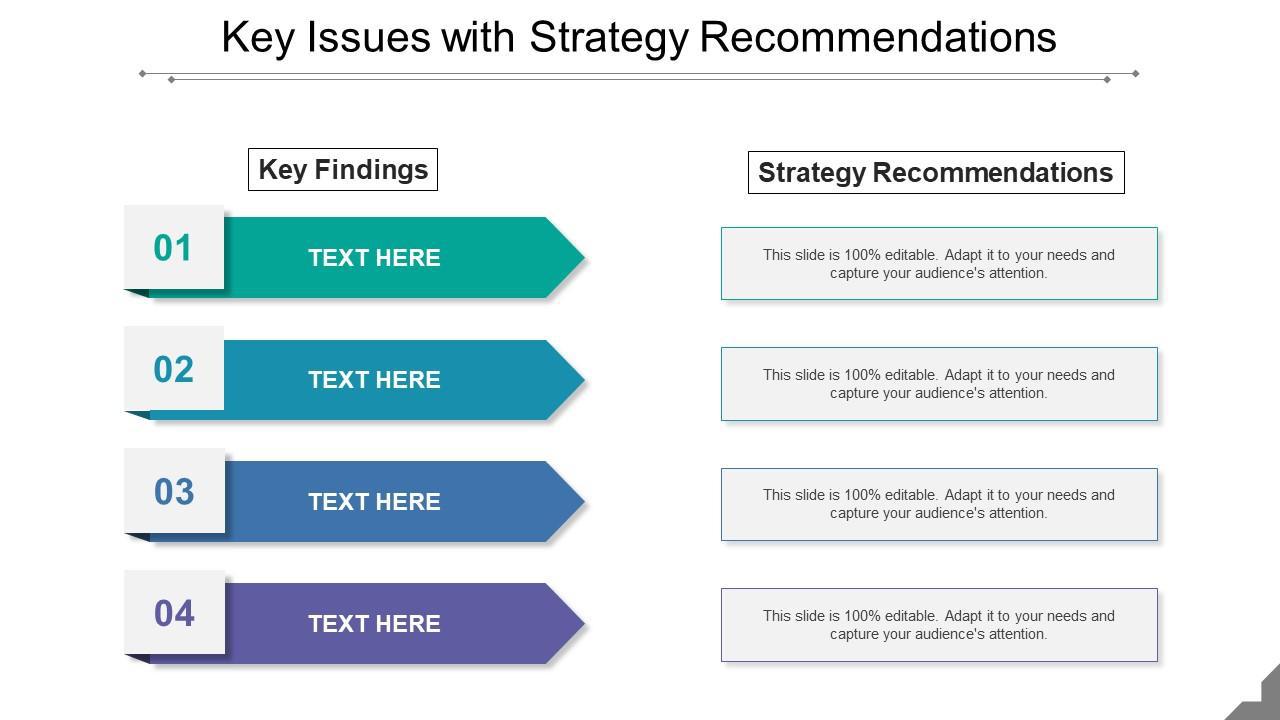Operazione anti-spaccio a Cuneo, 15 arresti dei carabinieri
In a sweeping anti-drug operation, Carabinieri in Cuneo have arrested 15 individuals linked to a local trafficking network. This crackdown highlights ongoing efforts to combat drug-related crimes and enhance community safety.
In the serene backdrop of the piedmont region, were picturesque landscapes often mask the undercurrents of illicit activities, a significant law enforcement operation unfolded in Cuneo. the recent anti-drug operation led by the Carabinieri has resulted in the arrest of 15 individuals, drawing attention to the ongoing battle against drug trafficking in the area.This operation not only highlights the persistent challenge posed by illegal drug trade but also underscores the relentless efforts of local authorities to reclaim safety and order within the community. As the details of the operation emerge, it becomes clear that Cuneo’s fight against narcotics is far from over, reflecting a larger narrative about the pervasive issue of substance abuse and its impact on society.
Q&A
Q&A: Anti-Drug Operation in Cuneo – 15 Arrests by Carabinieri
Q: What was the recent operation conducted by the Carabinieri in Cuneo?
A: The Carabinieri carried out an anti-drug operation in Cuneo, resulting in the arrest of 15 individuals suspected of being involved in drug trafficking activities.
Q: What led to this major operation?
A: The operation followed extensive intelligence-gathering efforts and surveillance, which revealed a network of drug distribution in the Cuneo area. Local authorities and carabinieri aimed to dismantle this network to enhance community safety.Q: What types of drugs where involved in the operation?
A: Authorities reported that the operation targeted a range of illegal substances, including but not limited to cocaine and marijuana, indicating a diverse trafficking operation.
Q: How did the Carabinieri execute the arrests?
A: The Carabinieri utilized a combination of strategic planning, monitoring, and coordination to execute the arrests together across multiple locations, minimizing the chances of suspects fleeing or destroying evidence.
Q: What has been the response from local authorities regarding the operation?
A: Local officials expressed strong support for the Carabinieri’s actions, emphasizing the importance of combating drug-related crime and protecting community health.They highlighted the operation as a crucial step towards maintaining public safety.
Q: Were ther any other outcomes from the operation aside from the arrests?
A: Yes, in addition to the arrests, the Carabinieri confiscated a significant quantity of drugs and other materials associated with drug trafficking, which are crucial for their ongoing examination.
Q: What is the next step following this operation?
A: Following the arrests, the judiciary will continue to investigate the network, with the aim of holding those involved accountable while also exploring further leads that may stem from this case.
Q: How do these arrests impact the community of Cuneo?
A: The arrests are expected to have a positive impact on the community by disrupting the local drug trade, reducing drug-related crime, and fostering a safer environment for residents.
Q: will there be any ongoing efforts by the Carabinieri in Cuneo?
A: Yes, the Carabinieri have indicated that this operation is part of a larger strategy to combat drug trafficking and related criminal activities, and they will continue to monitor and respond to emerging threats in the community.
Q: How can community members contribute to anti-drug efforts?
A: Community members can play a crucial role by remaining vigilant, reporting suspicious activities, and collaborating with law enforcement agencies to create a safer, drug-free environment.
In Conclusion
the recent anti-drug operation in Cuneo underscores the ongoing efforts of law enforcement to combat the pervasive issue of drug trafficking in the region. With 15 arrests made, the operation not only highlights the dedication of the Carabinieri but also serves as a potent reminder of the complexities and challenges associated with eradicating illicit activities. As communities strive for safety and wellbeing, such initiatives are crucial in fostering a collaborative environment where public safety remains a priority. Moving forward, it will be essential to continue fostering dialog and support systems that address the root causes of drug-related crimes, ensuring that the effects of this operation resonate positively throughout Cuneo and beyond.
FAQ
As the world continues to grapple with the echoes of conflict in the Middle East, a flicker of hope emerges from the shadows of despair. The possibility of a renewed ceasefire between Israel adn Hamas has once again surfaced in diplomatic circles,sparking a renewed discourse on peace and stability in a region long plagued by violence. Amidst the complex tapestry of historical grievances, political maneuvering, and humanitarian concerns, the latest negotiations signal a critical juncture in the quest for a lasting resolution. This article delves into the intricacies of the current situation,examining the motivations driving both parties back to the negotiating table and the potential implications for the future of Gaza,Israel,and the broader geopolitical landscape. as the international community watches closely, the pursuit of a ceasefire rekindles the age-old dream of coexistence and hope.
Renewed Diplomatic Efforts Amidst Escalating Tensions
Amid the escalating conflict, stakeholders from around the globe are actively pursuing new avenues for dialog between Israel and Hamas. Recent developments have seen key international actors expressing a willingness to mediate, aiming to break the cycle of violence. Through diplomatic channels, nations such as Egypt, Qatar, and the United States are stepping up their involvement, each hoping to facilitate a ceasefire that could lead to a more enduring peace. these efforts reflect a growing recognition that without direct talks, the humanitarian crisis could spiral further, prompting urgent calls for action.
As negotiations advance, several elements are being prioritized to forge a sustainable resolution. Here are the core aspects being discussed:
- Humanitarian aid access: Ensuring aid delivery to affected populations in Gaza.
- Prisoner exchanges: Addressing the plight of captives on both sides.
- Long-term security arrangements: Establishing frameworks aimed at preventing future escalation.
Furthermore, a recent table showcasing the key players and their roles in the negotiations highlights the multifaceted support required to bring about a ceasefire:
| Country/Entity | Role in Negotiation |
|---|---|
| Egypt | Mediation and hosting talks |
| Qatar | Financial support and humanitarian assistance |
| United States | Diplomatic pressure and strategic support |
Exploring the Role of International Mediators in the Ceasefire Talks
In the complex landscape of international negotiations, mediators play a pivotal role, serving as facilitators to bridge the gaps between conflicting parties. During the current ceasefire talks between Israel and Hamas,international mediators have been tasked with understanding the nuanced perspectives and grievances of both sides. Their ability to navigate the sensitive political terrain hinges on their impartiality and deep knowledge of the regional dynamics. Mediators frequently enough work under pressure, balancing the expectations of global stakeholders while striving to foster understanding and dialogue.Some of their key responsibilities include:
- Creating a Neutral Ground: Establishing environments conducive to open interaction.
- Facilitating Dialogue: Encouraging honest exchanges between the parties involved.
- Building Trust: Implementing confidence-building measures to reduce hostilities.
- Negotiation Strategies: Introducing innovative solutions that respect both sides’ core interests.
The effectiveness of mediators often reflects the collaborative efforts of various international organizations and governments. By drawing on their unique resources and experiences, they create frameworks that promote sustained engagement and peaceful resolutions. A clear breakdown of some prominent mediators involved in past ceasefire efforts demonstrates the diverse approaches and methodologies they employ:
| Mediator | Country/Association | Role in Ceasefire |
|---|---|---|
| United Nations | International | Oversaw humanitarian efforts and negotiations. |
| Cairo | Egypt | Facilitated direct talks between parties. |
| qatar | Qatar | Provided financial support for ongoing negotiations. |
Assessing the Impacts of Previous Ceasefires on Long-term Stability
The analysis of past ceasefires in the Israeli-Palestinian conflict reveals a complex interplay between short-term relief and long-term consequences. Historically, ceasefires have been seen as temporary solutions, often leading to a cycle of violence rather than lasting peace. Some key impacts of previous ceasefires include:
- Temporary Reductions in Violence: Ceasefires frequently result in immediate but short-lived declines in military engagements.
- Increased Hostility: Periods of calm can lead to heightened tensions, as underlying grievances remain unaddressed.
- Political Fragmentation: Ceasefires can exacerbate divisions within both Israeli and Palestinian communities, complicating efforts towards unity and negotiation.
To better understand the efficacy of ceasefires, it is essential to evaluate their outcomes against the backdrop of proposed long-term agreements. A comparative analysis of specific ceasefires offers valuable insights:
| Ceasefire Date | Duration | Overall Impact |
|---|---|---|
| July 2014 | 50 Days | Increased tension post-ceasefire, minimal political progress |
| August 2006 | 34 Days | Temporary peace, resurgence of hostilities |
| November 2012 | 8 Days | Short-lived calm, subsequent escalations |
These examples highlight the importance of contextualizing ceasefires within broader peace processes. The effectiveness of future negotiations may hinge on addressing root causes rather than merely silencing the guns.
Strategies for a Sustainable Peace: Lessons from History
The quest for sustainable peace often necessitates a reflective gaze into the past, where countless conflicts have hinged on the delicate balance of diplomacy and empathy. History teaches us that triumphant negotiations typically arise from a foundation built on understanding and recognition of mutual grievances. Key strategies that have emerged over centuries include:
- Inclusive Dialogue: Engaging all stakeholders, including marginalized groups, fosters a more complete approach to peace.
- Trust-Building Measures: implementing small, confidence-building steps can create an surroundings conducive to larger agreements.
- Versatility in Negotiations: Willingness to adapt and consider the evolving landscape of needs and concerns leads to more effective outcomes.
Examples from various peace processes illustrate these lessons vividly. For instance, the negotiations following the end of apartheid in South Africa demonstrate how transparent communication and acknowledgment of deep-rooted issues can pave the way for coexistence. Additionally, examining diplomatic efforts in the Balkans highlights the pitfalls of neglecting historical context and cultural sensitivities. A comparative view of these instances reveals that successful peace efforts tend to share common threads, which can be summarized in the table below:
| Key Aspect | successful Example | Outcome |
|---|---|---|
| Inclusivity | South Africa | End of apartheid, democratic elections |
| Trust-Building | Good Friday Agreement | Reduction in violence, political cooperation |
| Historical Context | Balkans Peace Process | Ongoing challenges, lessons for future |
Q&A
Q&A: Israel-Hamas Ceasefire Back on the Table in New Negotiations
Q1: What has prompted the recent discussions regarding a potential ceasefire between Israel and Hamas?
A1: Recent escalations in violence and ongoing humanitarian concerns have renewed international pressure for a ceasefire.Diplomatic efforts by regional and global powers, coupled with a desire to stabilize the situation for civilians affected by the conflict, have brought peace talks back into focus.
Q2: Who are the key players involved in the negotiations?
A2: The negotiations typically involve representatives from Israel and Hamas,with mediation support from countries such as egypt and Qatar,as well as international organizations. The United Nations often plays a role in facilitating discussions, emphasizing the need for humanitarian access and protection for civilians.
Q3: What are the main sticking points in these negotiations?
A3: Key sticking points include the terms of the ceasefire,such as the duration,enforcement mechanisms,and any reciprocal actions by both parties. Issues such as the blockade of Gaza, the exchange of prisoners, and the restoration of services are also critical topics that require consensus before a ceasefire can be finalized.Q4: How do these negotiations differ from past efforts?
A4: Each round of negotiations is influenced by current realities on the ground, including military developments, shifts in public opinion, and the geopolitical landscape.This time, there is an intensified focus on humanitarian needs and a potential framework for longer-term peace, rather than just temporary ceasefires.
Q5: What is the role of international community in these negotiations?
A5: The international community plays a crucial role by applying diplomatic pressure,providing humanitarian aid,and facilitating dialogue. Countries and organizations can offer incentives for peace, condemn violence, and help ensure that the voices of those affected by the conflict are included in the discussions.
Q6: What impact would a ceasefire have on the local population?
A6: A ceasefire could provide immediate relief to civilians by halting hostilities, allowing for the delivery of humanitarian aid, restoring access to essential services, and fostering an environment for dialogue. However, the long-term impact would depend on the agreements reached and the commitment to addressing underlying issues of the conflict.
Q7: What happens next if the ceasefire is agreed upon?
A7: If a ceasefire is agreed upon, the focus would shift to implementing the terms and ensuring compliance from both sides. This may involve increased humanitarian assistance, monitoring mechanisms to uphold the ceasefire, and subsequent discussions aimed at addressing more complex political issues.
Q8: What are the next steps for those following the situation?
A8: Stakeholders and observers shoudl remain engaged with the ongoing developments and monitor the actions from both sides. it’s essential to stay informed through credible news sources, support humanitarian initiatives, and advocate for a sustainable and just resolution to the conflict as negotiations unfold.
In Conclusion
As the sun sets over the middle East, the flickering hope for peace breathes life into the weary hearts of many. The renewed negotiations for a ceasefire between Israel and Hamas signal a pivotal moment in a long and complicated saga. While the path ahead remains fraught with challenges, the willingness to engage in dialogue offers a glimmer of optimism that echoes across borders and communities.
In a world frequently enough overshadowed by conflict, these discussions remind us that the quest for understanding and resolution is ever-present.The stakes are undeniably high, and the outcomes remain uncertain, but the act of coming back to the table is itself a testament to resilience and the enduring desire for harmony.
As we follow these developments, it is indeed essential to remain informed and engaged, aware that each step forward in diplomacy can pave the way for a future free from strife. In this intricate tapestry of politics and human emotion,every voice,every opinion,and every moment counts. Let us hope that this round of negotiations can lead to lasting change and a brighter tomorrow for all involved.
Ismea-Consorzio Doc Delle Venezie,nasce modello sviluppo aziende
ISMEA-Consorzio DOC Delle Venezie emerges as a beacon of innovation, fostering growth within the region’s wineries. By blending tradition with modern practices, it paves the way for sustainable development, enhancing quality and market reach for local producers.
Fumi di una stufa invadono casa, salvate due persone
In a recent incident, thick fumes from a malfunctioning stove permeated a home, prompting a swift emergency response. Firefighters successfully rescued two individuals, highlighting the importance of proper safety measures and vigilance in household appliances.
Verona e Padova tra le città più generose in donazione organi
Verona and Padua have emerged as shining examples of generosity in organ donation, highlighting a strong community commitment to saving lives. Their collaborative efforts and awareness campaigns inspire others, proving that compassion can transcend borders.
La Barba al Palo – Scudetto e Champions, vincere aiuta a vincere
“La Barba al Palo” explores the profound connection between winning the Scudetto and the Champions League, illustrating how success breeds success. In the world of football, confidence and achievement often intertwine, propelling teams to greater heights.
Un’azienda studia come prevenire furti e rapine con l’IA
A forward-thinking company is harnessing the power of artificial intelligence to tackle theft and robbery. By analyzing patterns and predicting suspicious behaviors, this innovative approach aims to enhance security measures and protect valuable assets.
Maxi truffa a Barletta sui bonus edilizi, sequestrati beni per 8 milioni
In Barletta, a significant operation uncovered a massive fraud involving building bonuses, leading to the seizure of assets worth 8 million euros. Authorities are intensifying crackdowns on such scams, aiming to protect legitimate beneficiaries.
Baschirotto in rimonta, 1-1 lo scontro salvezza Lecce-Venezia
In a tense battle for survival, Lecce and Venezia clashed in a gripping encounter that ended 1-1. Baschirotto’s late equalizer sparked hopes for Lecce, revitalizing their campaign as both teams aim to secure their place in Serie A.
Confcommercio, a marzo è stabile l’indice di disagio sociale
In March, Confcommercio reports a steady social discomfort index, reflecting ongoing economic challenges. While stability suggests resilience, it highlights the need for continuous support and strategic measures to address underlying social issues.
Lettera Rosset, ex presidente Finaosta e cda in commissione
Lettera Rosset, former president of Finaosta, has been appointed to the committee, bringing her extensive experience to the forefront. Her leadership in the financial sector will likely influence upcoming decisions that shape regional development.
Ente Regione Valle d’Aosta, la Cgil è il primo sindacato
In the heart of Valle d’Aosta, the Cgil stands as the leading union, championing workers’ rights and advocating for social justice. With a commitment to represent diverse voices, it plays a pivotal role in shaping the region’s labor landscape.
Giovani valdostani al Rally Dakar, il loro racconto ad Aosta
In a riveting recount of their adventure, young racers from Val d’Aosta share their exhilarating experiences at the Dakar Rally. From the grueling terrain to unexpected challenges, their journey embodies passion and determination, inspiring future generations.
Auto:Gruppo DR in forte espansione,+7,76% in primo trimestre
Auto:Gruppo DR is on the rise, boasting a remarkable 7.76% growth in the first quarter. This expansion underscores the company’s strategic innovations and market responsiveness, solidifying its position in the automotive landscape.
Sanità: Molise, nuovo tentativo Asrem per assumere medici
In a renewed effort to bolster healthcare in Molise, Asrem has announced plans to recruit more physicians. This initiative aims to enhance medical services in the region, addressing persistent shortages and improving patient care for local communities.
Ha una lite con un uomo, gli spara, lo uccide e fugge
In a shocking incident, a man became the center of a violent confrontation, leading to a tragic outcome. After a heated argument escalated, he shot his opponent, resulting in death before fleeing the scene. Authorities are currently investigating the situation.
Fedriga su dazi Usa, fondamentale negoziare
As the U.S. grapples with trade tariffs, the call for negotiation grows louder. Striking a balance between safeguarding domestic interests and fostering global partnerships will be fundamental for economic stability and mutual growth.
Si avvicina il carbonara day, ‘da tradizione a mitologia’
As Carbonara Day approaches, the beloved Roman dish transforms from humble roots to culinary myth. Food enthusiasts worldwide gather to celebrate this creamy pasta classic, honoring its rich tradition while exploring modern interpretations.
Donnet, Generali supererà anche questa crisi
In the face of economic uncertainty, Donnet confidently asserts that Generali will emerge stronger than ever. With a commitment to resilience and innovation, the insurance giant is poised to navigate this crisis and secure its future success.
Trieste e Generali, tra Palazzo Carciotti e il futuro hub
Nestled between the historic elegance of Palazzo Carciotti and the promise of modernization, Trieste and Generali are poised at a crossroads. This dynamic intersection captures the essence of a city embracing its rich heritage while forging a path into an innovative future.
Fim, peggiora produzione Stellantis, mai così bassa dal 1956
Stellantis faces a significant downturn in production, marking its lowest output since 1956. As the automotive giant navigates challenges, the industry watches closely to see how this decline affects both employment and market dynamics.
Storie e incubi nell’ospedale psichiatrico Cagliari in un libro
“Storie e incubi nell’ospedale psichiatrico Cagliari” delves into the haunting tales of a once-feared institution. Through chilling narratives, the book uncovers forgotten echoes of patients’ experiences, blending history and fiction in a poignant exploration of mental health.
Alessandria in presidio per Sara, Ilaria e le altre nove
In a poignant display of solidarity, Alessandria stands united “in presidio per Sara, Ilaria e le altre nove.” This gathering reflects a community’s resilience, amplifying voices in a call for justice and awareness around pressing social issues.
Lunedì congresso della Svp sulla riforma dell’Autonomia
On Monday, the South Tyrolean People’s Party (SVP) convenes for a pivotal congress focused on the reform of autonomy. Key stakeholders will discuss strategies to enhance regional governance, aiming to adapt to evolving socio-political landscapes in the region.







Lettera Rosset, Lavevaz-Caveri ‘nessuna indebita pressione’
In a recent statement, Lettera Rosset and Lavevaz-Caveri emphasized their commitment to transparency, firmly denying any allegations of undue pressure. Their focus remains on fostering open dialogue and collaboration within the community, reinforcing trust among constituents.